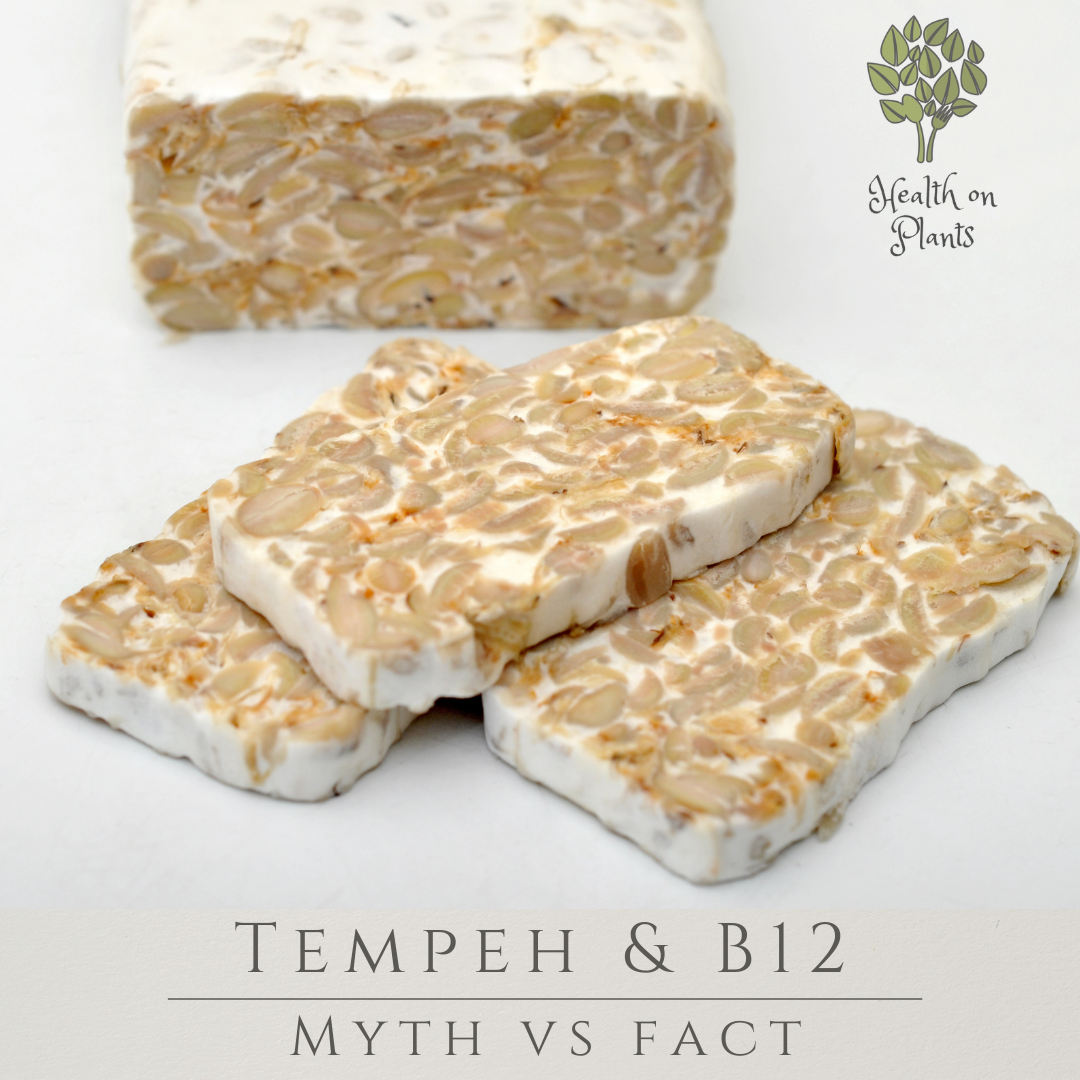Tempeh is sometimes reported to contain vitamin B12. This is of great interest to vegetarians and vegans for obvious reasons and it makes for a solid marketing pitch for those selling it.
But is it true? More importantly can one consider Tempeh as a reliable source of vitamin B12?
Over last few decades, many studies have been done on the subject and we have a fair idea today.
The most common form of Tempeh made from pure culture Rhizopus starter is relatively low in vitamin B12. A 100-gm portion contains about 0.05 micrograms which is less than 2% of the RDA making the B12 insignificant.
A Dutch study detected no B12 whereas a US study showed only little vitamin B12 analogues (0.05 mcg per 100g). The USDA National Nutrient Database for Standard Reference (2010) mentions a value of 0.08 mcg/100 g fresh tempeh, which is very low, since you need about 3 mcg daily. Areekul found between 0.18 and 4.1 mcg vitamin B12 analogues per 100g tempeh bought from various markets in Jakarta but interestingly, the pure mold did not produce vitamin B12 in the sterile broth. Only the isolated bacteria, identified as K. pneumoniae, under controlled environment, was responsible for B12.
In essence, the common method of using a pure culture containing only Rhizopus oligosporus, makes very little B12. The bacterias Klebsiella pneumoniae and Citrobacter freundii have been shown to produce B12 analogs in tempeh (when present). Whether these analogs are true, bioavailable B12 has again not been thoroughly studied yet.
Long story short, Tempeh had been found to be an unreliable source of b12. There is great variance from one batch to another. B12, if any, is so little that it pretty much considered insignificant.
✅So what's the solution: B12 supplementation. It’s simple, safe and cost-effective.

